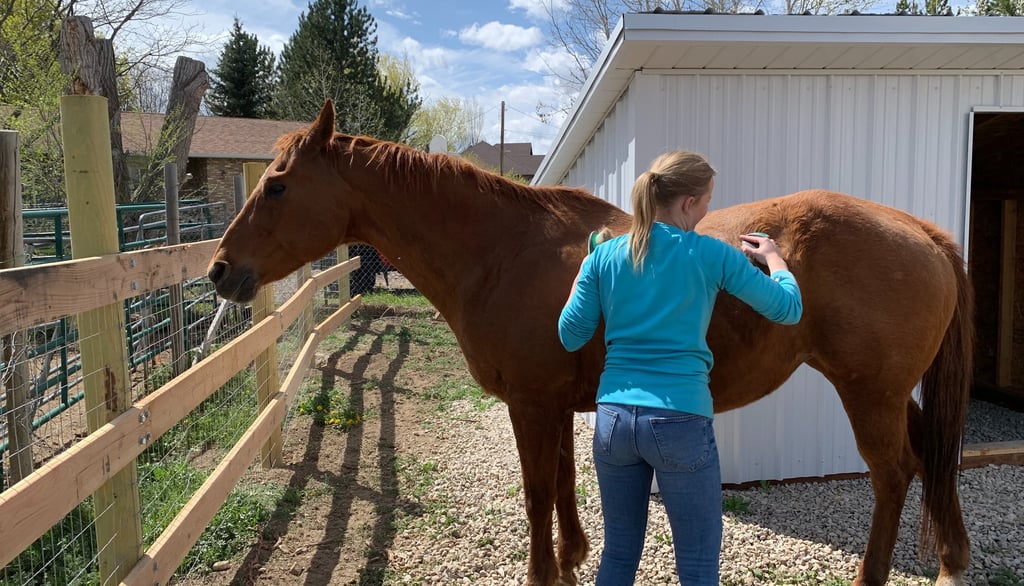How Recreational Therapy Changes Lives at Dahlia's Hope
“Recreational therapy is all about processing trauma when talking isn’t enough. Any time you can help a survivor process trauma and get rid of it—and the natural reactions to it—they can see their own power. They know they can do hard things and live a life worth living."
Staff
7/9/20243 min read


“Recreational therapy is all about processing trauma when talking isn’t enough. Any time you can help a survivor process trauma and get rid of it—and the natural reactions to it—they can see their own power. They know they can do hard things and live a life worth living.
A lot of research has shown that when someone experiences trauma, they often store it in their body, almost hiding it. And the trauma of sex trafficking is really very physical. So recreation therapy sometimes releases that tension or trauma, and it allows movement in a safe space.
Recreational therapists are trained to notice what types of trauma memories are coming up and what types of activities would be most helpful for survivors. The therapists are really focused on safety. For example, during yoga therapy, there might be a response to a movement and trauma comes up and they’re able to stop and talk to a therapist and process it in that moment. In an office, a survivor might be so used to hiding the trauma that it doesn’t come out.
We had one survivor say yoga therapy changed everything for him. The movement and feeling the power of his own body in a way he chose to move allowed him to move the trauma away from him.
The activity itself can be so many different things. At Dahlia’s Hope, we’ve done animal-assisted therapy, hiking, learning to do makeup or hair, going river rafting, and even self-defense classes. And so many of the experiences, even when they have individual goals, are done as a group. So, survivors are there supporting each other as well.
Dahlia’s Hope has an animal farm, and animal-assisted therapy is important. In fact, research has shown that spending time with animals lowers blood pressure and increases confidence in survivors. We’ve also seen survivors build trust in themselves and learn to form healthier boundaries after working with the farm animals. It is effective because it allows survivors, who are resistant to talk therapy, to address emotions and issues through direct experience and nonverbal communication. For example, during equine therapy, a survivor can interact with one of our Dahlia's Hope horses. The survivor's interpretation of the horse's behavior may be the way the survivor would interpret the behaviors of their trafficker or how they felt when their trafficker approached them. They may say ‘The horse feels skittish, scared, and wants to get away.’ There is often a connection and recognition of the horse's behavior and how they felt with a past abuser. By letting the horse embody the emotions or experiences and ‘be there’ for the animal, the survivor can reprocess the trauma in a gentler way.
The survivors at Dahlia’s Hope look forward to recreation therapy more than ‘talk therapy’ because there’s an element of fun. Sometimes, people think it’s just play, but it does release trauma and teaches survivors they are in control of their bodies. It shows them they are strong and can conquer fears.
We work with a program called Smart Defense through the Elizabeth Smart Foundation which offers self-defense classes. Some survivors were in fear before the class even started, but the knowledge they were not alone kept them going. That’s what got them to stand up and say they were ready to be taught how to protect themselves. Survivors do want to trust someone—even when they haven’t before.
Those experiences support Dahlia’s Hope’s mission of having survivors lead independent lives that are worthy, empowering, and a life they want to live.
So while there is an element of fun, recreation therapy is still therapy. And it changes lives.”
Caroline Marriott
Clinical Therapist, LCSW
Salt Lake City, Utah
Office: 801-949-1522
© Dahlia’s Hope, 2025 l EIN: 84-1994403
Address:
PO Box 850
Pleasant Grove, UT 84062

